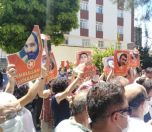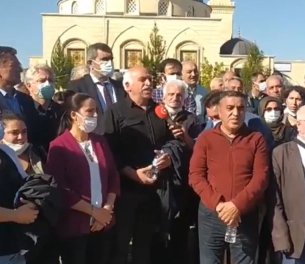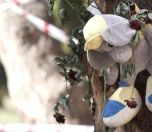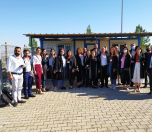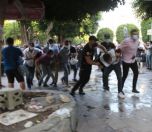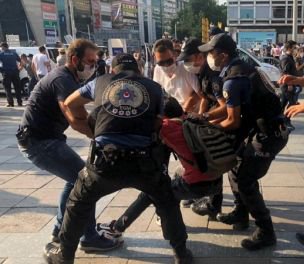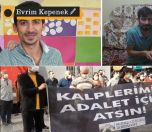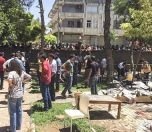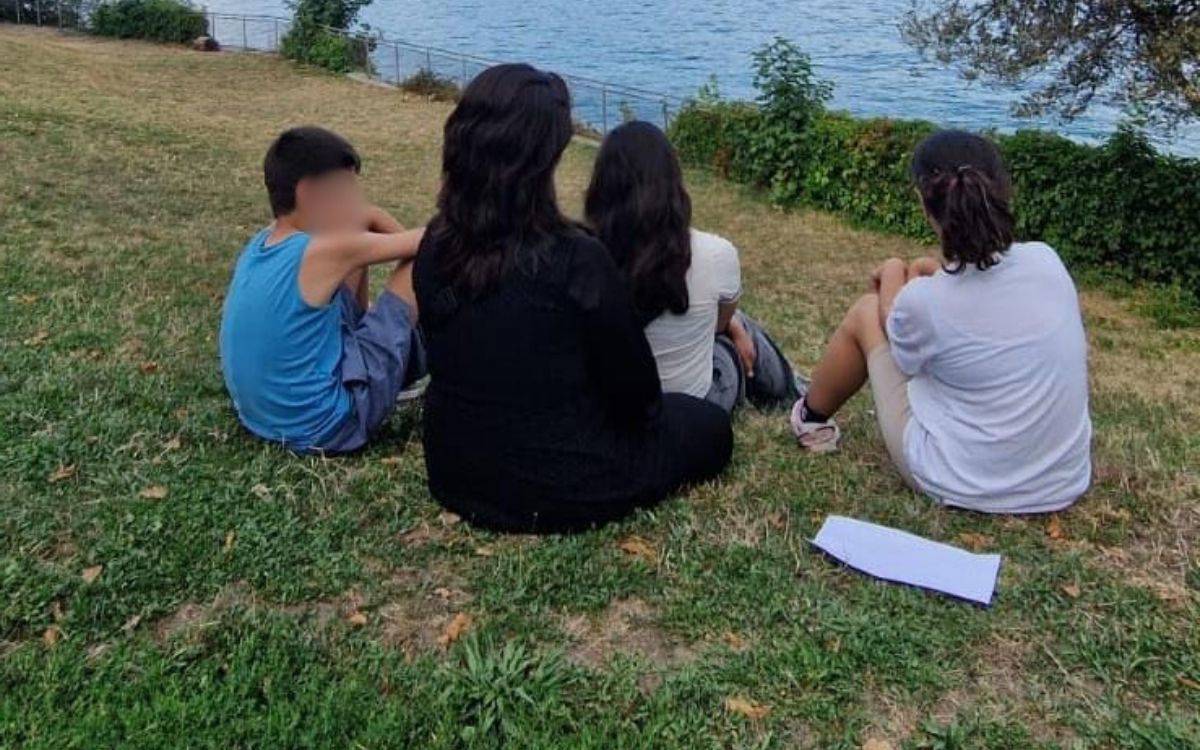Click to read the article in Turkish
"When I hear the word 'July', only pain and anger come to my soul. For the last five years, there has not passed a single day when I did not feel sorrow for my son. My son Vatan... He was killed in a suicide bomb attack in Suruç. All he wanted to do was to bring toys to children of Kobanê. They claimed 33 lives, like my son. How can I not have sorrow in my heart?"
It is how Murat Budak expresses his sorrow for the killing of his son Vatan in a suicide bomb attack in Suruç in Turkey's southeastern province of Urfa on July 20, 2015. It was five years ago today.
University student Aydan Ezgi Şalcı said, "Let's weave the future all together, stitch by stitch..." She went to Suruç from Samsun. She was 19.
Construction worker İsmet Şeker had lost his son Mustafa in Kobanê, Syria. He left İstanbul for Suruç to sprinkle a handful of dust on his grave from Kobanê. He wanted to have a hospital built there. He was 65.
Nazegül Boyraz, a member of the main opposition Republican People's Party (CHP), said, "I will prepare cakes and pastry for the young there." She went from İstanbul to Suruç. She was 55 years old.
Polen Ünlü, Hatice Ezgi Saadet, Çağdaş Aydın, Murat Yurtgül, Duygu Tuna... 33 people in total... They said, "No dream will be left unfulfilled." They went to Suruç to bring toys to children of Kobanê.
They came together in front of Amara Cultural Center to hold a statement for the press. They made the statement. Then, the suicide bomb attack was carried out. 33 people, most of whom were members of the Socialist Youth Associations Federation (SGDF), lost their lives there.
The massacre has gone down in Turkey's "dark" history as one of the attacks carried out by the ISIS in Turkey. The ones who lost their lives in Suruç have come to be known as "33 travellers of dream."
While the toys that "33 travellers of dream" wanted to bring to Kobanê's children were brought to Kobanê, their relatives and loved ones established the Suruç Families' Initiative after their passing.
'Azad Welat...'
I meet Murat Budak from the Initiative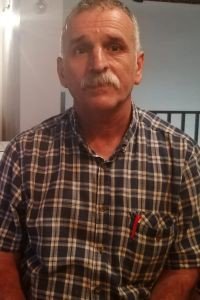 in İstiklal Avenue in Taksim, İstanbul to talk about his son Vatan. Neither can I ask a question to a father who lost his son in the massacre, nor can he talk. There is a deep mourning in the air.
in İstiklal Avenue in Taksim, İstanbul to talk about his son Vatan. Neither can I ask a question to a father who lost his son in the massacre, nor can he talk. There is a deep mourning in the air.
"Can you please introduce yourself," I say to him, just to start the conversation somewhere. He answers as follows:
"We live in Gaziosmanpaşa, İstanbul. I am a socialist. We also raised our children as such. In fact, it was also our children themselves who raised themselves like that. I have two sons, the first one is Vatan (Homeland in Turkish) and my second son is Özgür (Free in Tr.). When Vatan was born, we wanted to name him 'Welat' (Homeland in Kurdish).
"If we had another kid, we would name him 'Azad' (Free in Kr.). It was our slogan: 'Azad Welat' (Free homeland in Kr.). When I went to the Civil Registry to give the name Welat to my son, the officer there said to me, 'Don't name him Welat, he will have problems at school and in life.' So, we named our first son Vatan. It was 1993. Nothing much has changed since then. My son Vatan, whom we could not call Welat, was massacred in Suruç."
Suruç Massacre
"I don't like July in any way at all. I want it to end as soon as possible," he says, taking a deep breath. I do not want to look him in the eyes, thinking about how I can possibly formulate the right questions to ask to a father who lost his son at a very young age in such an ugly massacre.
He seems to understand my hesitation and continues his remarks:
"All I feel is pain and anger. The same sorrow for the last five years... The sorrow aside, it also honors us. Humans are born, live and die. What matters is not to live for a hundred years, but to die an honorable death.
"My son was killed while he wanted to bring toys to children. Vatan has left an honor to us, just like our all 33 children..."
Vatan, Welat...
I ask him, "I am curious about Vatan, can you tell me more about him." He first smiles, then answers with a faraway look in his eyes.
"Vatan was a precious soul," he says, reiterating that he was a young person who risked his life to help other children and not everyone can do something like that. He then speaks about Vatan by sharing a memory that turned into joke between the father and son:
"He qualified to study at the department of electrical and electronic engineering at the Bolu İzzet Baysal University. Bolu is a province with a significant number of nationalist people from the 'Idealist Hearts' and people from the [Gülen] community. We had no other choice, so we sent him to one of the dormitories of the community.
"They did not accept him into the dorm in the second term, he was left at the door. I went there and talked to the director.
"The director told me the following: 'He does not obey the rules of our dorm. He does not come to the mosque, we cannot change him in anyway. He has apparently found five other young people and changed them. We want to raise people who think as we do, we cannot take him...'"
When he says, "In fact, there were many reasons for him to not to go to Suruç," I can sense the longing in his voice because he actually wants to talk about his deceased son all the time:
"First of all, he used to work in a state agency. He was planning to take the External Transfer Exam when he got back here. I warned him that he could not get back on time, he said, 'I can.' He was such a person, children and a struggle for justice-equality had priority for him above all else."
Vatan did not like his photos taken, says his father further, sounding a bit angry at him because they now do not have many pictures together.
'If I had phoned him, maybe he would be alive'
He seem to always think about July 20, 2015. He looks back there again...
"What I have been thinking about Suruç, what hurts me deep inside is this: On July 20, at around 11.45 a.m., I took my phone to call him. But I did not, thinking that he might be with his friends. So, I did not do it to not disturb him.
"They had been already in front of Amara Cultural Center for the statement. If I had called him, maybe he would have walked a bit farther to talk to me, maybe he could have survived the explosion with minor wounds."
"Maybe," he says, "Maybe..."
Judicial process
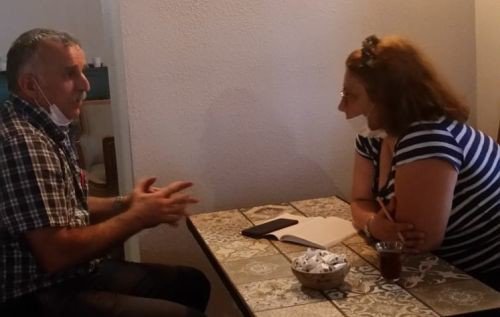
I ask him, "Do you think that a real judicial process operates?" He reminds me of the Madımak Massacre in Sivas and Ankara Massacre in 2015. He is not hopeful about justice, but he sounds very hopeful about the power of struggle. "I do not expect anything to come out of the understanding of justice in this country," he says and adds:
"We will, of course, struggle for justice to the end. It is important that the perpetrators are put on trial, but the ones on the very top actually need to answer for this. Ahmet Davutoğlu, the then PM of Turkey, said something like, 'If I talk about what happened from November 2015 to June 2015, the world will come apart.' I want him to stand trial and speak as well.
"What did Mahir Kaynak from the National Intelligence Organization (MİT) say after the explosion? He said, 'Such acts cannot be committed without the knowledge of the state.' What else can I say?"
After Vatan...
We are now talking about Vatan again. He says that 'life is over' after Vatan's passing, adding that they are now especially trying to make sure that Özgür, the 17-year-old brother of Vatan, holds on to life. He says that they are trying to support Özgür, who was always together with his elder brother Vatan:
"It is a great sorrow for us, his brother has also been affected a lot. He is 17, just think about it, they were always together.
"We are trying to make sure that he holds on to life, it is so hard. What keeps us on our feet is the honor Vatan brings to us. His mother was utterly collapsed in the beginning, but when she sees Vatan's friends, she pulls herself together. The young are our sources of hope..."
'They are our travellers of dream'
He is enraged about death, but he still has hope for life. Father Murat Budak concludes his remarks as follows:
"I will die and, perhaps, no one will remember me after a year. But 33 travellers of dream will be remembered so long as the earth revolves. Suruç would be an opportunity to bring Turkey to a better place, but they, unfortunately, prevented it. Vatan and our all other children there... They had a purpose to go there. They all went there for humanity. We will keep on talking about them, we will not forget them..."
What happened?
Upon the call of the Socialist Youth Associations Federation (SGDF), around 300 young people came together in Suruç in Turkey's southeastern province of Urfa on July 20, 2015. They were there to bring toys and humanitarian aid to Kobanê in Syria. While they were in front of the Amara Cultural Center for a statement for the press, a suicide bomb attack was carried out. 33 people lost their lives in the attack: Koray Çapoğlu, Cebrail Günebakan, Hatice Ezgi Sadet, Uğur Özkan, Nartan Kılıç, Veysel Özdemir, Nazegül Boyraz, Kasım Deprem, Alper Sapan, Cemil Yıldız, Okan Pirinç, Ferdane Kılıç, Yunus Emre Şen, Çağdaş Aydın, Alican Vural, Osman Çiçek, Mücahit Erol, Medali Barutçu, Aydan Ezgi Salcı, Nazlı Akyürek, Serhat Devrim, Ece Dinç, Emrullah Akhamur, Murat Yurtgül, Erdal Bozkurt, İsmet Şeker, Süleyman Aksu, Büşra Mete, Duygu Tuna, Polen Ünlü, Nuray Koçan, Vatan Budak, Mert Cömert. It was identified that Şeyh Abdurrahman Alagöz was the one who carried out the bomb attack that claimed the lives of 33 people in Suruç. A confidentiality order was imposed on the file on July 23, 2015 on the ground that "the examination of the documents in the file would jeopardize the purpose of the investigation." Judicial processFiled by the Şanlıurfa Chief Public Prosecutor's Office 18 months after the massacre, the indictment demanded that three defendants, one of whom was arrested, be given aggravated life sentence aggravated for 104 times each. Yakup Şahin, one of the defendants, was arrested as a suspect of the October 10 Ankara massacre, which claimed the lives of 103 people in 2015. According to the indictment, Deniz Büyükçelebi and İlhami Ballı, the other two defendants, are in Syria. The lawsuit filed into the Suruç Massacre started 21 months after the incident at the Şanlıurfa 5th Heavy Penal Court on May 4, 2017. The only defendant of the case who was not a fugitive did not attend the hearing. In the final hearing of the case filed against the public officials on January 9, 2017, Mehmet Yapalıal, the then district security director of Suruç, was fined 7,500 lira for "neglect of duty and misconduct in office." The court has ruled that he shall pay the fine in 12 instalments. There were two police officers as defendants in the second case against public officials, who are still tried for "misconduct in office" at the Suruç Penal Court of First Instance. |
(EMK/SD)
* Photos: Gazete Karınca, ETHA, Evrim Kepenek - bianet





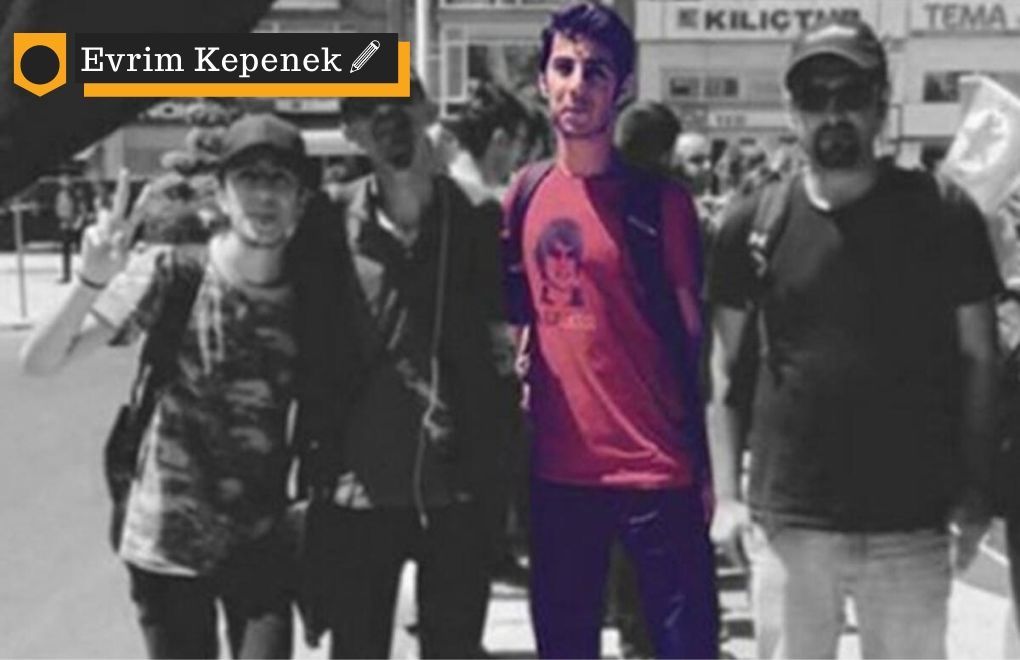
.jpg)
